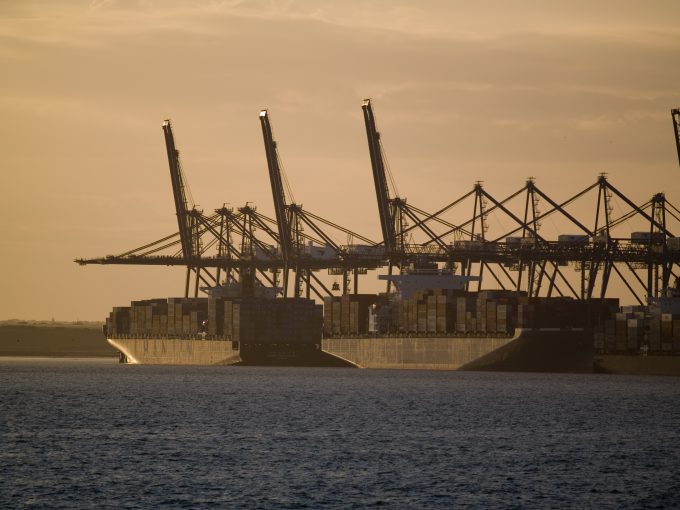Container spot rates have peaked as all major trades see prices fall
There was more evidence in this week’s container port freight markets that peak prices on ...
TFII: SOLID AS USUALMAERSK: WEAKENINGF: FALLING OFF A CLIFFAAPL: 'BOTTLENECK IN MAINLAND CHINA'AAPL: CHINA TRENDSDHL: GROWTH CAPEXR: ANOTHER SOLID DELIVERYMFT: HERE COMES THE FALLDSV: LOOK AT SCHENKER PERFORMANCEUPS: A WAVE OF DOWNGRADES DSV: BARGAIN BINKNX: EARNINGS OUTODFL: RISING AND FALLING AND THEN RISING
TFII: SOLID AS USUALMAERSK: WEAKENINGF: FALLING OFF A CLIFFAAPL: 'BOTTLENECK IN MAINLAND CHINA'AAPL: CHINA TRENDSDHL: GROWTH CAPEXR: ANOTHER SOLID DELIVERYMFT: HERE COMES THE FALLDSV: LOOK AT SCHENKER PERFORMANCEUPS: A WAVE OF DOWNGRADES DSV: BARGAIN BINKNX: EARNINGS OUTODFL: RISING AND FALLING AND THEN RISING

Maersk Line is diverting the UK call of its AE1 service 8,850 teu Maersk Lavras to London Gateway at the end of this week due to increasing berth and landside congestion at Felixstowe.
The carrier issued an advisory notice to customers late last week. The Maersk Lavras is scheduled to discharge 2,251 containers (all Maersk Line cargo) at London Gateway within a 24-hour window commencing at 1am on Saturday.
There are no plans to load exports and the ship will proceed to Bremerhaven to resume its normal schedule.
Like many of its North European counterparts, the UK’s biggest container port of Felixstowe has been challenged in the past year by a surge of ultra-large container vessels (ULCVs) that require more gangs and more cranes to service the increased cargo exchange – regularly more than 5,000 boxes per call.
This in turn exerts pressure on the landside operation in a vicious circle of reduced port productivity.
And, according to sources at Felixstowe, the ULCVs often arrive outside their official schedule windows, resulting in a bunch of big ships all vying for the same berths at the same time.
Indeed, one of the largest containerships in the world, the 19,224 teu MSC Oscar, was last week reported to have been held at anchor off Felixstowe unable to secure a berth for more than 24 hours, notwithstanding the importance of the world’s second largest line to the UK east coast port.
One local source confirmed to The Loadstar this morning that the current congestion was due to the port having to handle too many big ships over a short time frame.
He said Felixstowe was “not coping well” and berthing delays of 48 hours or more were now quite common – especially for feeder ships.
In the past, when carriers have diverted Felixstowe-bound ships to London Gateway and other North European ports at the eleventh hour, it has resulted in some supply chain confusion. However, the significantly longer notice given to Maersk Lavras consignees suggests that the co-ordination between carrier and port planners has improved, with Felixstowe now seemingly prepared to flag-up potential working problems at a much earlier stage.
London Gateway opened officially in November 2013 with the call of the SEACs consortia, and has since added several new services to its portfolio. It must now hope that its proven flexibility in handling diverted ships will ultimately win it the holy grail of a regular Asia-Europe loop. It is becoming more important, given that the port is due to open its third berth at the facility in the second half of this year.
Comment on this article